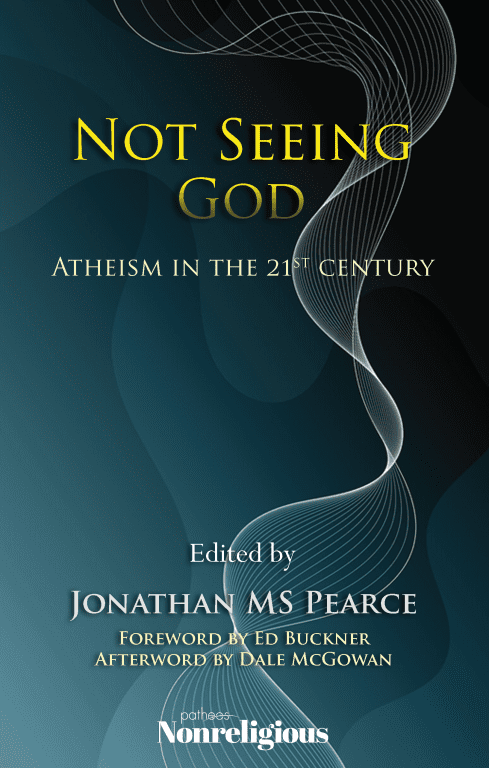I spent the previous piece on this topic, laying the groundwork for establishing that God is a moral consequentialist before pointing out that some theists create a defence of this accusation by claiming that God is not moral because God is under no moral obligation. What does this mean and does it hold up? Let’s take a look.
First of all, what does William Lane Craig say on the matter[1]:
Since God doesn’t issue commands to Himself, He has no moral duties to fulfil. He is certainly not subject to the same moral obligations and prohibitions that we are. For example, I have no right to take an innocent life. For me to do so would be murder. But God has no such prohibition. He can give and take life as He chooses. We all recognize this when we accuse some authority who presumes to take life as “playing God.” Human authorities arrogate to themselves rights which belong only to God. God is under no obligation whatsoever to extend my life for another second. If He wanted to strike me dead right now, that’s His prerogative.
Divine Command Theories
This sort of position seems to imply that God’s commands are not good in the context of him giving them, but in humans following them, because God is not “good”. Initially, this is problematic in a pragmatic sense, as Wesley Edwards states[2]:
As we’ve seen, when confronted with what would normally be considered crimes against humanity, the theist will respond in various ways, none of them satisfactory: “We are His creations, and He can do as He pleases,” or “God is good regardless of His actions, just in ways that are beyond us.” Stripped of our own ability to know an evil deed when we see it, we now have to first ask: “Who did it?” One is reduced to saying, “I don’t know if it was evil until you first tell me whether or not God did it. I’ll even do the deed myself, no matter how bloody or genocidal, if you first convince me that God ordered it.” Uncritical obedience to orders ultimately becomes the only criterion of moral behavior, even when the rule is infanticide, such as illustrated in Gen 22:2 where Abraham is told to slaughter his own son. Indeed, Abraham’s willingness to blindly follow orders – even with the tortured, frightened screams of his own child in his ears – is held up as the supreme example of moral “goodness” we should all follow.
If it is true, as some theists claim, that “God communicates to us our sense of judgment for determining right and wrong,” then shouldn’t we naturally sense moral beauty in these O.T. [Old Testament] atrocities, since they were sanctioned by God? Fortunately, few do. But even if our moral instinct is one of revulsion, we are told to remember that good is defined by God. Anything He does is good by definition, no matter what: healing sick children or having them ripped apart by wild animals. Curiously, many Christians have often complained at this point that “things were different in the Old Testament.” In other words, their “absolute” morals were different in the past. Such a view ironically turns their absolutism into a rather extreme form of moral relativism.
I think Wesley Edwards points out the flaws to Craig’s approach with clarity and force. As well as (Divine Command Theories (DCTs) being circular in nature, they suffer the issues of not being particularly good pragmatic guides of how to act morally since we are unable to fathom exactly what would be morally commanded by God and how to comparatively rate different actions morally. There is an epistemological issue with how we would know how and if God had communicated a command to us and so on.
The importance of exclusivity in Divine Command Theories here is that they imply that morality only comes from power, status and relation in giving particular commands. As you will see, this is fraught with problems.
Moral Obligation Exemption
Furthermore, Craig tries to drive a wedge between moral obligation and a moral ‘good’ such that God is exempted from obligations or moral duties/oughts. However, this does not exempt his actions from being morally valued. Craig would say that the value is necessarily good, since it comes from God’s nature but this is begging the question. Moreover, the moral value (which may well be good, and necessarily so) seems to still be derived, in so many cases (as I have exemplified previously and elsewhere) from the consequences of the actions. From every design facet to every death in the Bible, to every unit of pain and suffering experienced in the world, God must be valuing his own actions and omissions on the basis of their consequences. I can see no way around this conundrum.
I am particularly perturbed by this claim that “God doesn’t issue commands to Himself”. What does this really mean? I may live on a desert island with no other human being. I might decide, after some time, to become vegetarian, so as not to cause any pain or suffering to other sentient creatures. I’m doing this because I am trying to make my behaviour as morally good as possible, irrespective as to whether any other human being qua moral creature exists on Earth. The obligation I have is to my desire to be as moral as possible.
What Craig seems to be saying here is that God has no obligation to anyone else. But I don’t see morality as exclusively being an obligation to other people. Indeed, in its purest form, it is an obligation to oneself and is to one’s standards and desires. You could say that God has no desires, but he has a nature to which his actions must be benchmarked. If, as many theists will claim, God has some kind of free will, then God has an ability to act in any number of ways. There is no doubt here that we get into a whole suite of problems, many of which I have set out in other pieces:
But this doesn’t take away from the idea that God has moral character will stop it seems perfectly clear to me that any sentience entity that acts and interacts with other living creatures is moral – their actions have moral dimensions. Therefore, God is moral.
Joseph Lombardi sets out in American Catholic Philosophical Quarterly, in his essay “Against God’s Moral Goodness“:
Questions about the moral goodness of God usually arise in discussions of the problem of evil. But matters other than the quantity and types of evil in the world might also called divine moral perfection into question. Consider the following argument. God is not perfectly good in the moral sense unless God always fulfils his moral obligations. This, in turn, presupposes that God has moral obligations. But there are features of the divine nature which make it impossible for God to have such obligations. Therefore, God is not perfectly good in the moral sense.
William Alston, in his 1989 paper “Some Suggestions for Divine Command Theorists” discusses the term obligation at length, saying the “S has a moral obligation to do A” essentially means “S (morally) ought to do A”, and:
It leaves us without any adequate way of construing the goodness of God. No doubt, it leaves us free to take God to be metaphysically good; but it forecloses any conception of God as morally good, as exemplifying the sort of goodness that is cashed out in being loving, just, and merciful. For since the standards of moral goodness are set by divine commands, to say that God is morally good is just to say that He obeys His own commands. And even if it makes sense to think of God as overbearing commands that He has given Himself, that is not at all what we have in mind when thinking of God as morally good. We aren’t just thinking that God practices what He preaches, whatever that may be….
For if God is good in the right way, there will be nothing arbitrary about His commands. On the contrary His goodness will ensure that He issues those commands for the best
Alston continues by discussing how incoherent moral obligation is when attempting to apply it both to humans and to God. “For if it is the same, how could it be constituted so differently in the two cases? And if what it is for God to have an obligation is something quite different from what it is for a human being to have an obligation, how is divine obligation to be construed? I have no idea.”
Craig claims that God “can give and take life as He chooses”. God certainly can do this (he has the ability if he exists) – but taking life gratuitously and causing pain gratuitously falls into the trap of the problem of evil.
What Craig is saying here is essentially that God can do whatever the hell he likes, murder and rape an entire species of sentient creatures, and be let off the hook because he is not moral. How can these same people say God is love and God is good? How can they say that God is perfect? Again, this is a case of a solution to one theistic conundrum not cohere in with other theistic conundrums and solutions. Let’s see if Craig’s claims chime with the Bible:
Nahum 1:7
“The LORD is good, A stronghold in the day of trouble, And He knows those who take refuge in Him.”
Mark 10:18
“And Jesus said to him, “Why do you call Me good? No one is good except God alone.”
James 1:17
“Every good thing given and every perfect gift is from above, coming down from the Father of lights, with whom there is no variation or shifting shadow.”
Romans 2:4
“Or do you despise the riches of His goodness, forbearance, and long suffering, not knowing that the goodness of God leads you to repentance?”
Romans 8:28
“And we know that God causes all things to work together for good to those who love God, to those who are called according to His purpose.”
Romans 12:2
“And do not be conformed to this world, but be transformed by the renewing of your mind, so that you may prove what the will of God is, that which is good and acceptable and perfect.”
There are loads more, but you get the point. The Bible explicitly claims God is (morally) good.
The key to what Alston proposes as a solution to maintaining that God is good but has no obligations in the sense of DCTs is as follows: “If this move is to work, we will have to develop an account of divine moral goodness that does not involve the satisfaction of moral obligations.”
Alston sets out that some say God is “essentially perfectly good” and it would be impossible for him to fail to be good when speaking of God’s duties or oughts. The question might return to the issue I set out in a previously linked piece, that God’s nature determines his actions so that he cannot act freely/have free will. Alston maintains that, even though there is no way that God can fail to, say, love his rational creations, he still ought to do so. Even if there is an overwhelming obviousness to a statement, it doesn’t invalidate the truth of a statement. This, Alston calls “the inappropriateness argument”. (I have to admit, there is some confusion in Alston’s paper as he presents arguments, Devil’s Advocate arguments and counter-arguments and you are often not sure which of these he actually adheres to.)
Alston continues by separating some conception of moral goodness from moral obligation.
The fact that it would be, morally, a good thing for me to do A must not be confused with the fact that I morally ought to do A, that it is morally required of me, that I am morally blameworthy in case I fail to do it.
There is this idea of supererogation, whereby it might be morally good that I teach children in a Siberian village to play the piano, but I’m not morally obliged to do so. What Craig’s defence seems to do is to say that God is not morally obliged to love his creations, but also that in loving them, this is somehow not morally good (i.e. it has no moral value because God is not moral). It is as if there is some kind of moral vacuum when considering God. So what Alston appears to end up saying is that God cannot have moral obligations qua divine commands, as he is not obligated to anyone else, but he can still have moral goodness in his actions.
Of course, the problem for theists is when a critical analysis of the Bible shows that God is in contravention of those perfect moral standards. In breaking promises and in justifying rape or genocide, does God invalidate his perfect moral goodness, his omnibenevolence? And we return to the problem of evil.
Eleanore Stump, Catholic philosopher, has pointed out that God has entered into covenants and promises with people in the Bible and this constitutes obligation. Breaking these, should God do so, would be less than morally perfect and show that God is under some kind of moral obligation. I don’t think that Alston’s defence of this Stump example is as he says: an anthropomorphism (such as God “stretching out his arm”). If God promises to do something, then he promises to do something (it reminds me of the Jewish concentration camp prisoners of war taking God to court for breaking the covenant).
Alston concludes of this: “In particular, we can think of God as perfectly good, morally as well as otherwise, even if that moral goodness does not consist in the perfect satisfaction of obligations.” There is more to moral goodness than moral obligation. Terms like justice, mercy and love all have moral dimensions, and all supposedly apply to God.
When Alston talks of these arguments to evade the issues of the Euthyphro Dilemma, he says: “We evaded the first horn by taking God’s moral goodness, including the moral goodness of divine actions, not to be constituted by conformity to moral obligations, and hence not to be constituted by conformity to divine commands, even on this ethical theory.” He is saying that there is moral goodness in divine actions.
The issues with Craig’s approach are then:
- You can have obligations to yourself.
- You can have obligations even if you are constrained to act to a single outcome.
- You can be moral outside of obligations.
- God is moral (if he exists).
- Craig incoherently argues for moral consequentialism whilst simultaneously calling it a terrible ethic and denying God is moral because he has no obligations.
- And, therefore, the claim that God is a moral consequentialist maintains.
To conclude, despite various potential objections, it seems apparent that the moral value derived from the actions of God have their basis in the consequences of those actions, and not in their intrinsic morality (if this exists at all). Either the objective morality claimed by theists does not exist, or it is consistently trumped by the consequences of the actions. Whether the consequences are defined with a classical utility – or something else, such as justice or love – is neither here nor there, and this can be discussed elsewhere. What is apparent is that if this is the case, then theists might do well to adjust their own moral philosophy, or to explain why the moral code of God is different to our own, if God is supposed to be the moral benchmark against which we all act, and whose moral nature is reflected in our own personal moral dignity.
NOTES:
[1] Slaughter of the Canaanites, William Lane Craig,
http://www.reasonablefaith.org/site/News2?page=NewsArticle&id=5767 (retrieved 01/01/2012)
[2] Does Morality Depend on God?, P. Wesley Edwards,
http://www.freethoughtdebater.com/FDoesMoralityDepend.htm (retrieved 01/01/2012)
















